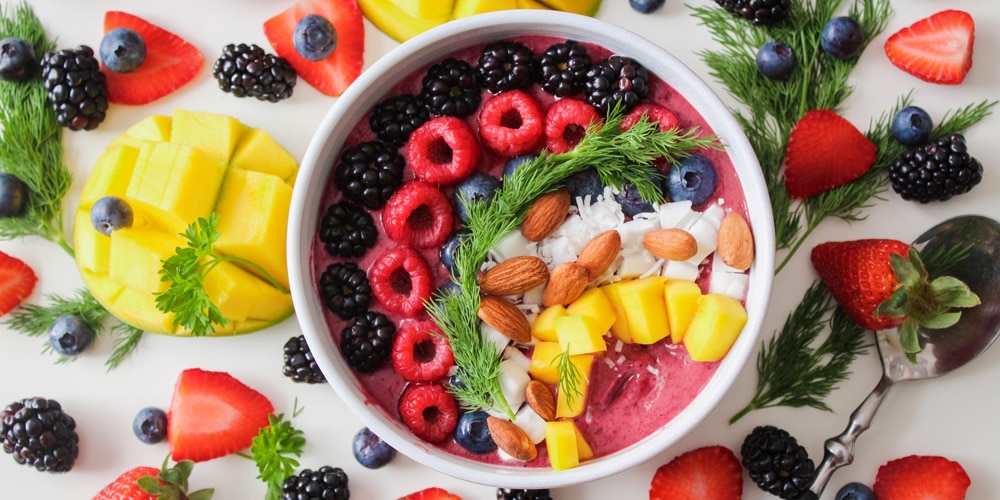- Keeping your hair healthy means nourishing it properly from the inside out.
- Of course, if you are losing your hair, an adequate diet alone is no substitute for an appropriate treatment. anti-fall treatment local.
- But it does represent a definite ancillary factor, which will help you to neutralise your hair loss.
- Excesses, as much as deficiencies, threaten the basic energy of your hair and therefore its lifespan.
- More specifically, a good hair loss prevention diet includes as few foods rich in refined sugars as possible and incorporates
- an adequate supply of protein, iron, zinc, magnesium and B vitamins.
STOP REFINED SUGARS
YOUR HAIR AND THE GLYCEMIC INDEX
Eat as little as possible of foods rich in refined sugars with a high glycaemic index (GI). This applies primarily to industrially processed (or overcooked) sugars, cereal products and starchy foods such as: white bread, rusks, pasta, pizzas, confectionery, pastries, white flours and sugars, bleached rice, jams, chips, soft drinks, beer and spirits, etc.
These products are the sworn but insidious enemies of hair. Always opt for products that are little or unprocessed: wholemeal flours and breads; basmati rice or brown rice; cooked soya; (wholemeal) breakfast cereals; wholegrain cane sugar; dark chocolate, etc. These products have a lower glycaemic index than the previous ones. By way of example, here are 10 commonly consumed foods:
| REFINED | GI | REFINED OR UNREFINED | GI |
|---|---|---|---|
| White sugar | 100 | Whole cane sugar | 70 |
| Chips | 95 | Boiled potatoes | 65 |
| White bread | 85 | Wholemeal bread (poilâne type) | 60 |
| Breakfast cereals | 85 | Special K cereals | 55 |
| Overcooked classic pasta | 85 | Pasta cooked al dente | 50 |
| Quick-cooking white rice | 85 | Wholegrain brown rice | 45 |
| Coca Cola | 70 | Freshly squeezed orange juice | 45 |
| White flour | 70 | Wholemeal flour | 40 |
| Classic jam | 65 | Fructose jam | 35 |
| Chocolate bars | 65 | Dark chocolate (>70% cocoa) | 22 |
GLYCAEMIC INDEX?
The first things that come to mind are diets to combat diabetes and excess weight! But... according to recent American research*, a high glycaemic index indirectly promotes the secretion of androgenic hormones, which is why hair is also affected. Over-processed products trigger a cascade of damaging hormonal reactions, for the skin in general (teenage acne) and for the scalp in particular.
In detail: their higher sugar levels pass too quickly into the bloodstream and trigger a sudden increase in insulin secretion, which stimulates the adrenal glands and activates the secretion of adrenal androgens, which in turn release sebum and lead to the formation of sebaceous impurities. These impurities (greasy cellular debris) are deposited under the scalp, hindering blood circulation to the hair roots and potentially hindering hair development. Chain reactions :
High GI → Insulin → Adrenals → Androgens → Sebum → Sebaceous impurities
And watch out for the cooking! It's not just the sugar content that increases the glycaemic index, but also the length of time a food is cooked. The longer a food is cooked, the quicker it is digested and the more quickly its glucose enters the bloodstream, triggering the chain of reactions described above. For example, pasta cooked al dente is digested more slowly (GI 50) than overcooked pasta (GI 85), so its glucose is released gradually into the bloodstream, without spiking insulin or triggering a surge in androgens.
* Research initiated by Dr Loren Cordain,
the first to demonstrate the impact of refined foods on the skin (2002).
SABOTAGE OF REFINING
On the other hand, during the refining process, there are significant, if not total, losses of nutrients that are essential for hair production: proteins, iron, zinc, magnesium and B vitamins (see next section). What's more, refining depletes foods of dietary fibre, which helps to increase their glycaemic load. For example, for every 100g consumed :
| FOOD | IRON | ZINC | VITAMIN B6 |
|---|---|---|---|
| Wholemeal bread | 2.4 mg | 5 mg | 1.1 mg |
| White bread | 1.1 mg | 2 mg | 0.2 mg |
| Complete sugar | 4 mg | 0.3 mg | 0.4 mg |
| White sugar | 0.1 mg | 0 mg | 0 mg |
DIET, AN AGGRAVATING FACTOR IN ANDROGENETIC ALOPECIA
The over-stimulation of androgens and the alteration of food, through our totally denatured modern diet, cannot be a factor in triggering androgenetic loss/alopecia, as these are programmed from birth. But it could be a major aggravating factor, hastening the process of hair thinning and partly explaining the increased severity of female alopecia over the last forty years.


I've been diabetic for 1 year, I've recently been losing a lot of hair and that worries me a lot, I'm on pills,
Hello, thank you for your message. Following a hair diagnosis (at the Centre Clauderer in Paris or by correspondence), we will be able to help you understand the causes of your hair problem and help you regain healthier hair. Please do not hesitate to contact us. Yours sincerely The Clauderer Team.